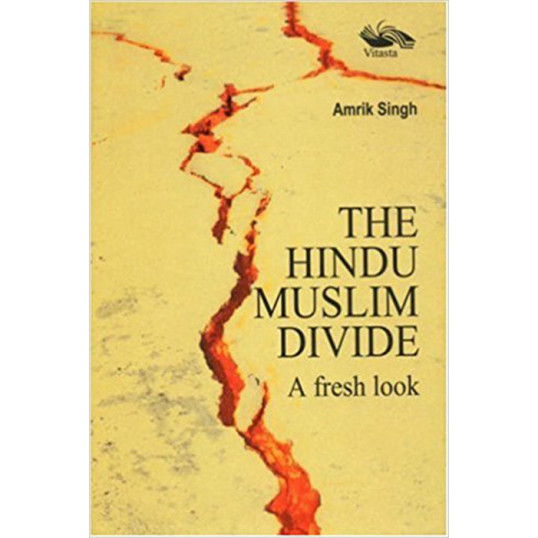-
₹276.00
| Book Details | |
| Author | Amrik Singh |
| Publisher | Vitasta Publishing Private Limited |
| Language | English |
| Publication Year | 2009 |
| ISBN | 9788189766054 / 8189766058 |
| Edition | 1st |
| Binding Style | HardCover |
| Number of pages | 252 |
| Weight | 372 g |
| Shipping Time | 2-4 Working Days |
| Delivery Time | 4-10 Working Days (Through India Post) |
| International Shipping | Yes (Through India Post) (International Shipping Charges applicable) |
Justice Sachar committee has placed Muslims at the lowest rung of India's economic, educational and social hierarchies. If India is to develop, this vast mass of humanity cannot be left untouched and uncared for. Some of the popular myths such as Muslims producing more children and the community preferring madarsa education have been demolished. The Sachar Committee has established that only four per cent Muslims go to the madarsas. Now, it is for the community to see through the design of the mullahs who vehemently oppose reforms in the community or madarsa education.
For India to evolve into a plural society, poverty has to be overcome. This requires different policy orientations. Fundamentalism, either of the Muslim or the Hindu brand, has to be taken care of. India cannot live in the past. Nor can it allow its past to distort the present.
Amrik Singh tries to analyse the reasons for Hindu-Muslim divide and suggest solutions. The partition of India in 1947 was supposed to be a panacea for the Hindu-Muslim divide which had engulfed India for the preceding 1,000 years. Those who thought so were naive. The issue was not territorial dispute but assimilation. One belief system, new and aggressive, wanted to establish hegemony over the other and this led to confrontation. The Partition also put a question mark on the loyalty of those Muslims who chose to stay on in India. The physical division of India created an emotional turmoil in both the communities. Rather than addressing these issues, a fledgling Pakistan unleashed its territorial ambitions and fought three fratricidal wars with India. Vested interests in India gave these the colour of a clash between two communities.
The Bharatiya Janata Party that fed on Hindu nationalism did everything to perpetuate this myth. This was not opposed strongly by either the secular forces or from within the Indian Muslim community and communal forces gained in the process.
Pakistani leaders have also helped perpetuate this divide.
Amrik Singh quotes Zulfikar Ali Bhutto who had said in 1971 that there had been a thousand years of war between Hindus and Muslims in India. The Muslims in India may not be guided by what Bhutto and some others said. The Hindutva forces nonetheless will like its followers to believe that Islam is determined to conquer India and destroy its culture. The introduction of the separate electorate system by the British had reinforced this division over a period of time. Mahatma Gandhi understood this fact and tried to bridge the divide through active participation in the Khilafat movement. But that did not work.
About the author
Prof. Amrik Singh was an educationist and former Vice-Chancellor, Punjabi University.
Tags: Non-fiction, Hindu-Muslim relations, communal tensions, Indian history, religious studies, social dynamics

